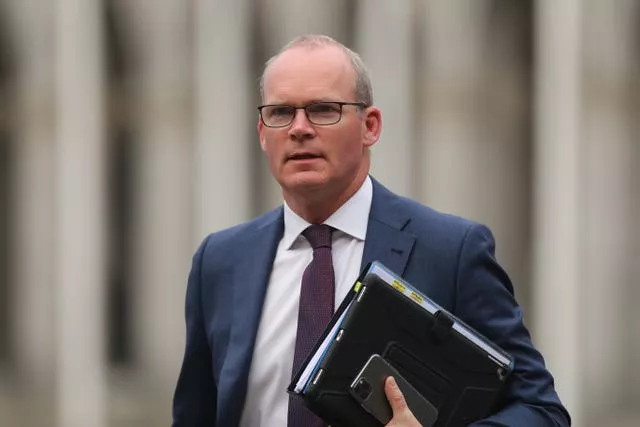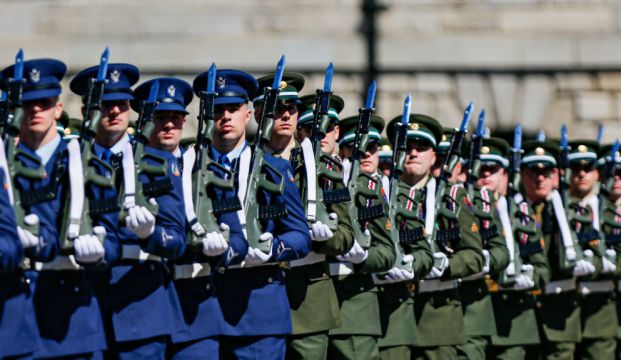The largest increase in defence spending in the history of the Irish state will build “an agile and modern Defence Forces”, Taoiseach Micheál Martin has said.
The increase takes the Defence Forces budget from €1.1 billion to €1.5 billion by 2028 – benchmarked against inflation at January 2022 prices.
A Government action plan, published on Wednesday, also notes the “urgent” need for “HR and cultural transformation” in the Defence Forces.
It identifies the recruitment of new senior-level civilian HR positions as early steps in meeting the goal.
Speaking at McKee barracks in Dublin on Wednesday, Taoiseach Micheál Martin said the action plan reflects the Government’s commitment to “this vital public service”.
“The action plan we’re launching today reflects our commitment to invest in the future of this vital public service,” he said.
“And to build the agile and modern Defence Forces our society requires.
“Overall, we’ve committed to significantly increased spending on defence, increasing the budget by 50 per cent to €1.5 billion.
“We’ve committed also to increasing the size of the Defence Forces by an extra 2,000 personnel over and above the current establishment of 9,500.”
The Taoiseach added that other commitments in the plan include enhanced military radar capabilities, upgrading the naval fleet, strengthening cyber defence capabilities and revitalising the reserve Defence Force.
It comes following recommendations by the Commission on the Defence Forces, which set out a capability framework for moving to “Level of Ambition 2” (LOA2).
LOA2 is defined by the Government’s action plan as: “Building on current capability to address specific priority gaps in our ability to deal with an assault on Irish sovereignty and to serve in higher intensity peace support operations.

The funding will allow for the required transformation and investment in recruitment and equipment that were identified by the commission to reach the new level.
A third level, LOA3, is outlined by the action plan as developing Irish defence capabilities to a “full spectrum” and to an extent “comparable to other similar-sized countries in Europe”.
Minister for Foreign Affairs Simon Coveney hailed the plan as “extraordinary” and “ambitious”.
“In simple terms, 6,000 people in six years to join the Defence Forces both in terms of armed defence forces and the reserve,” he said.
“That is an extraordinary, ambitious plan.”
He added that the reform of the Defence Forces would be seen in the context of a “changed security and defence landscape across Europe” following Russia’s invasion of Ukraine.
“Since the invasion, we have seen a number of EU member states take their own historic decisions – whether that is the decision of Finland and Sweden to apply for NATO membership or the decision of the Danish people in a referendum to reverse their opt out from the EU’s common security and defence policy, or indeed the historic decision by Germany to dramatically increase their financial commitment to defence spending.
“All of these changes are signals that the world around us is changing, and Ireland needs to respond also.
“And that is exactly what we are doing.”







